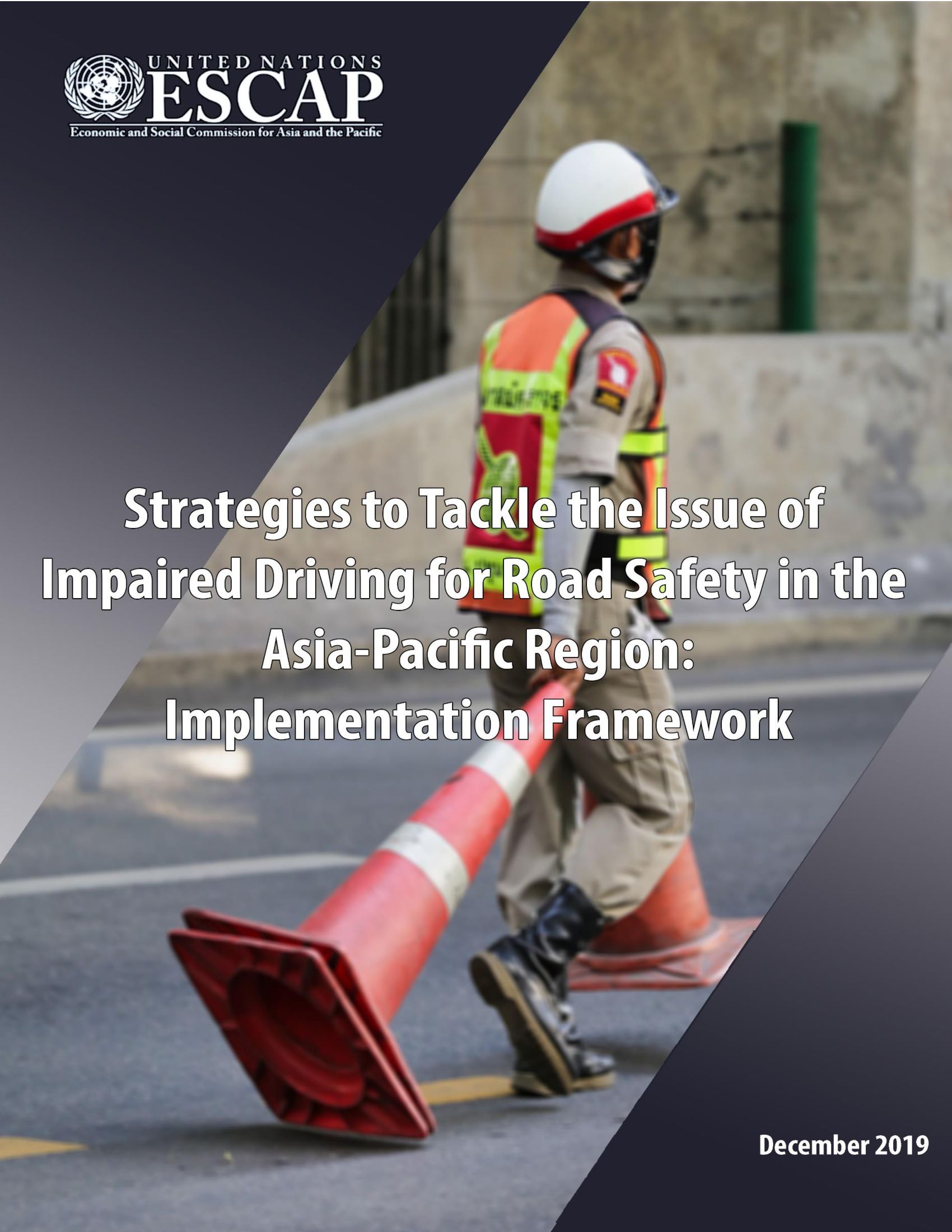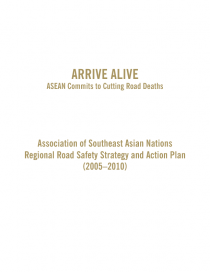Global Meeting of Regional Road Safety Observatories
Practical Road Safety Engineering Training Series
Contact Person
Crash Investigation and Reporting Assessment
Contact Person
Crowdsourced Data Platform and Insights to Improve Road Safety in Asia and the Pacific
Contact Person
Collaboration with WHO towards improving road safety data quality
Contact Person
Establishing Managing and Maintaining APRSO Crash Database
Contact Person
Developing Minimum Road Safety Indicators
Contact Person
Strategies to Tackle the Issue of Impaired Driving for Road Safety in the Asia-Pacific Region: Implementation Framework

Road Safety is a sustainable development challenge for the member countries of the Economic and Social Commission for Asia and the Pacific (ESCAP). In 2016, approximately 1.35 million people were killed in road crashes globally. The economic and social consequences of this are enormous. In recent years, road safety has been receiving greater attention from the international community, and in 2010, the General Assembly proclaimed the period from 2011 to 2020 as the Decade of Action for Road Safety. The global commitment to road safety was further strengthened by the General Assembly through the adoption of resolution 70/1 on 25 September 2015 of the 2030 Agenda for Sustainable Development, as reflected in targets 3.6 (by 2020 halve the number of global deaths by road accidents) and 11.2 (by 2030, provide access to safe, affordable, accessible and sustainable transport systems for all, improving road safety, notably by expanding public transport, with special attention to the needs of those in vulnerable situations, women, children, persons with disabilities and older persons) of the accompanying Sustainable Development Goals.
Road safety has been a major concern in Asia and the Pacific, as 60 per cent of global road deaths in 2016 occurred in the region. In line with the trend globally, road safety has received greater attention from high- level policymakers among ESCAP member countries. At the Ministerial Conference on Transport, at its third session, held in Moscow from 5 to 9 December 2016, the Asia-Pacific transport ministers renewed their commitments towards improving road safety by adopting the Ministerial Declaration on Sustainable Transport Connectivity in Asia and the Pacific, which was endorsed by the Commission in it its resolution 73/4 of 19 May 2017. Under this resolution, members and associate members of ESCAP have been encouraged in meeting their commitments under the Decade of Action for Road Safety (2011-2020) and 2030 Agenda for Sustainable Development.
Notably, road traffic deaths in the ESCAP region declined from 777,016 in 2010 to 733,541 in 2013, and then increased to 812,172 in 2016. The South and South-West Asia subregion accounted for 48.13 per cent of the road deaths.
Arrive Alive: ASEAN Regional Road Safety and Action Plan (2005-2010)

One plan for each country was developed, via national workshops with the assistance of 90-100 road safety professionals from key agencies. These reports were also created with the assistance of private sector and nongovernment organizations. The plans focus on improvement of safety for vulnerable road users (especially pedestrians and motorcyclists) who form the vast bulk of deaths and injuries in ASEAN region.
First Workshop on the Implementation of the Asia-Pacific Road Safety Observatory (APRSO)
Contact Person
Pagination
- Previous page
- Page 2